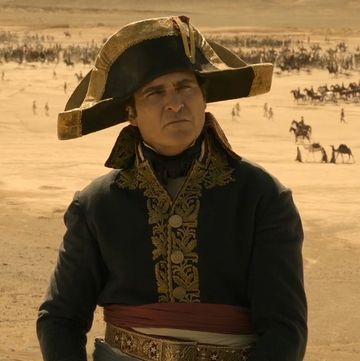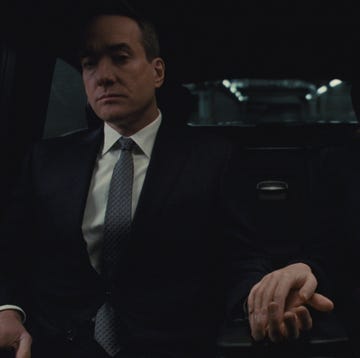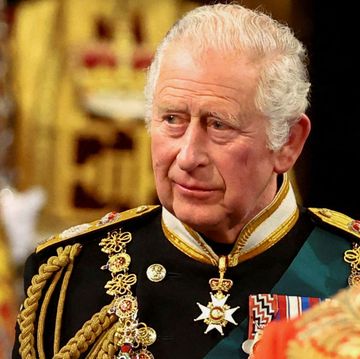Michael Wolff made a name for himself writing scathing columns about New York’s media elite in the early 2000s. He is, according to a 2004 New Republic profile, “the quintessential New York creation, fixated on culture, style, buzz, and money, money, money. For Wolff, nothing is more erotic than a multibillionaire.”
So it’s fitting that what’s likely to be the biggest project of his career is a jaw-droppingly candid look at President Donald Trump’s White House.
The Guardian obtained an early copy of Fire and Fury: Inside the Trump White House this week “from a bookseller in New England” and reported on a passage in which Trump’s former chief strategist Steve Bannon called Donald Trump Jr.’s meeting with Russians during the 2016 campaign “treasonous” and “unpatriotic.”
Then New York magazine rushed publication of its excerpt of the book, which claims Trump didn't want to be president, that Melania Trump cried—not tears of joy—when he won, and paints a picture of everyone around the president viewing him as a distracted child. In a Hollywood Reporter excerpt published Thursday, Wolff explained that after writing a 2016 profile on Trump, he inquired about penning a book about him, to which Trump neither said yes or no. That's how the writer ended up with “a semi-permanent seat on a couch in the West Wing.”
Criticism of the book has been swift, with The Washington Post and others questioning the veracity of its accounts. White House press secretary Sarah Huckabee Sanders said Thursday that Wolff "never actually sat down with the president," and that it was Bannon who authorised the interviews. But, as Wolff tells it, Trump in effect gave the green light for Wolff to be a fly on the wall for 18 months: A shocking decision given Wolff’s reputation.
“One of the most powerful, most talked about, and most hated figures in New York media”
The journalist ran his own media company in the 1990s—Wolff New Media—after publishing a book called Net Guide, which was "a roadmap to the electronic highway.” In 1999 he wrote Burn Rate, a book detailing his efforts to raise capital for his small company. Though it seems like a dry topic, Wolff managed to make it interesting by focusing the narrative on himself. A Salon review from the time reads:
In "Burn Rate" the narrator doesn't just reveal his own neuroses and personality flaws —he un-self-consciously exhibits all the naivete, foibles and amoral exhibitionism of Michael Wolff himself. Wolff's narrative audacity is stunning. He is, by his own account, a man who seems willing to break any promise, sell out his employees and do just about anything else to further his own selfish interests.
As he transitioned into media reporting with a juicy column for New York Magazine, that reputation stuck.
"Michael will say anything about anybody," late New York Times media reporter David Carr told the New Republic. "He's fearless in a way that people attribute to sociopathology but that I always thought was a business strategy."
The same New Republic article calls Wolff “one of the most powerful, most talked about, and most hated figures in New York media,” thanks to a couple of National Magazine Awards won in 2002 and 2004 but mostly due to his status in Manhattan’s social scene. Wolff would famously post up at Michael’s—a fancy Midtown haunt that was a regular gathering place for the city’s most powerful journalists—where he boasted the prime position of table five.
He had a reputation for foregoing the traditional reporting route of making calls and taking notes in favor of soaking up tidbits at Michael’s. From the New Republic:
Much to the annoyance of Wolff's critics, the scenes in his columns aren't recreated so much as created--springing from Wolff's imagination rather than from actual knowledge of events. Even Wolff acknowledges that conventional reporting isn't his bag. Rather, he absorbs the atmosphere and gossip swirling around him at cocktail parties, on the street, and especially during those long lunches at Michael’s.
A former colleague told the magazine: "He did get a lot of things majorly wrong, but he never was just pedestrian. You have to admire his balls."
Wolff had a reputation for breaking embargoes and printing off-the-record conversations. "Everything's a transaction with him," the late Carr said. "There's no unalloyed moment with Michael. You're always on the record and performing. I think people don't like him because they have to be careful around him."
And a friend of Wolff’s recalled hearing a source at The New York Times say: “If Wolff were any further up his own ass, he'd be a colonoscopy" and another colleague said, "People really can't stand Michael."
After years of writing for New York magazine, Wolff attempted to buy it along with advertising executive Donny Deutsh, former New York Daily News owner Mort Zuckerman, and movie mogul Harvey Weinstein, who has now been accused of sexual abuse by dozens of women. After that failed attempt, Wolff went on to write for Vanity Fair, USA Today and others.
“A Parasite”
In 2007, Wolff launched Newser.com with former New York editor-in-chief Caroline Miller. They described the aggregation site as a mix of Google News, Drudge Report and Digg. But it was controversial. The Wrap’s Sharon Waxman wrote a 2010 column calling the site a “parasite,” accusing them of lifting content as opposed to aggregating it and improper sourcing.
Tabloid fixation
Wolff has long been a target of the New York Post—on account, perhaps, of his explosive books on Post owner Rupert Murdoch. Wolff’s tumultuous personal life was often detailed in the tabloid’s gossip column Page Six, which referred to Wolff as a “thick-lipped lothario.” Page Six closely chronicled Wolff’s messy separation from lawyer Alison Anthoine, and his affair with his decades-younger Vanity Fair colleague, Victoria Floethe, with whom he had a baby in 2015. Floethe wrote a column for The Spectator in the UK titled: “How I Became the ‘Femme Fetale of New York Gossip,” describing her relationship with Wolff and the resulting spotlight.
The Reputation Sticks
Like his days as a New York magazine columnist, Wolff’s reporting tactics are once again being questioned with Fire and Fury. An author’s note in the book (which was tweeted out by MSNBC’s Katy Tur) explains that Wolff compiled anecdotes from more than 200 interviews with senior White House staffers and Trump himself. But it also allows that many of the accounts he describes “are in conflict with one another … Sometimes I have let the players offer their versions, in turn allowing the reader to judge them.”
Some have questioned a passage in which Trump responds to a reference to former Speaker of the House John Boehner with, “Who’s that?” But the president had spoken and tweeted about Boehner before taking office.
And Katie Walsh, the former White House deputy chief of staff, who is quoted on the record extensively in the New York book excerpt, already denied an account to a reporter.
It’s the same backlash Wolff has gotten for years.
"His great gift is the appearance of intimate access," an editor who’d worked with Wolff said in the 2004 New Republic piece. "He is adroit at making the reader think that he has spent hours and days with his subject, when in fact he may have spent no time at all."
But as Wolff once said: "You can judge a book by its enemies."

Kate Storey is the author of White House by the Sea: A Century of the Kennedys at Hyannis Port and the senior features editor at Rolling Stone. She was previously a staff writer at Esquire, where she covered culture and politics, and has written long-form profiles and narrative features for Vanity Fair, Marie Claire, Town & Country, and other publications.














